The Origin And Meaning Behind 20 Of The World’s Most Well Known Brands
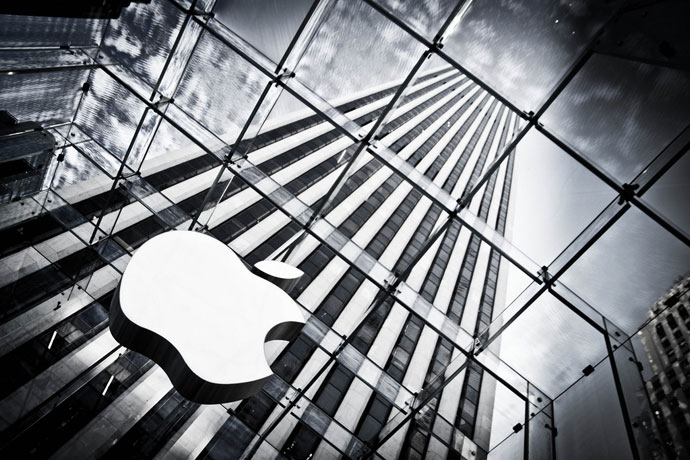
Image via Flickr/ JeremyMP
What’s in a name? That which we call a rose by any other name would smell as sweet, right? While the classic line from Shakespeare’s “Romeo and Juliet” holds true in many cases, the proper name can sometimes make or break a new company. Some founders put a great deal of thought into selecting the right names for their companies. Still others choose their labels easily, and the perfect label originates by mere coincidence. Here are the origins and meanings of 20 companies that have become household names:
Virgin Group Ltd.

Image via Christopher Parypa/Shutterstock
Richard Branson’s venture capital conglomerate, which includes businesses in the travel and entertainment spheres, got its name from one of Branson’s early partners. When starting Branson’s first business, a record store, they considered themselves business “virgins,” and the name stuck.
Sharp Corporation

Image via Flickr/via joetech.com
Japanese businessman Tokuji Hayakawa founded a metal workshop in 1912. In 1915 Hayakawa invented the Ever-Sharp mechanical pencil. Although the pencil business was destroyed by an earthquake in 1923, the name Sharp stuck around. The company began manufacturing radios in 1925 and television sets in 1953. Today Sharp is the fifth-largest television manufacturer in the world.
PepsiCo
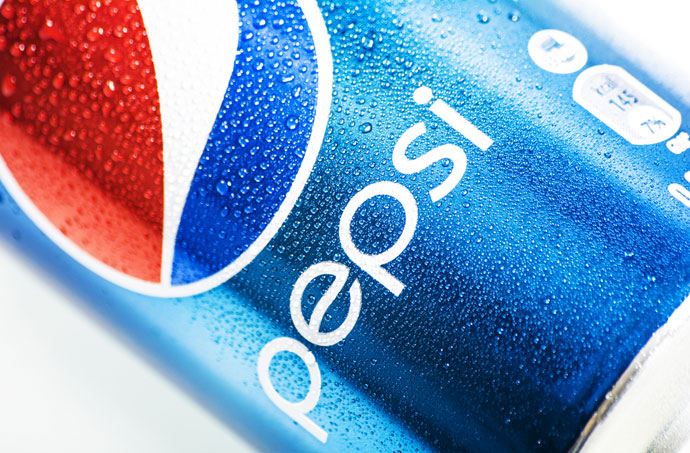
Image via Twin Design/Shutterstock
The cola was introduced as “Brad’s Drink” in 1893 by Caleb Bradham, who made and sold the drink at his drugstore. Bradham hoped to create a fountain drink that was not only tasty but would also aid in digestion. The drink was renamed Pepsi Cola after the digestive enzyme pepsin and the kola nuts used in the drink’s recipe.
Microsoft Corporation
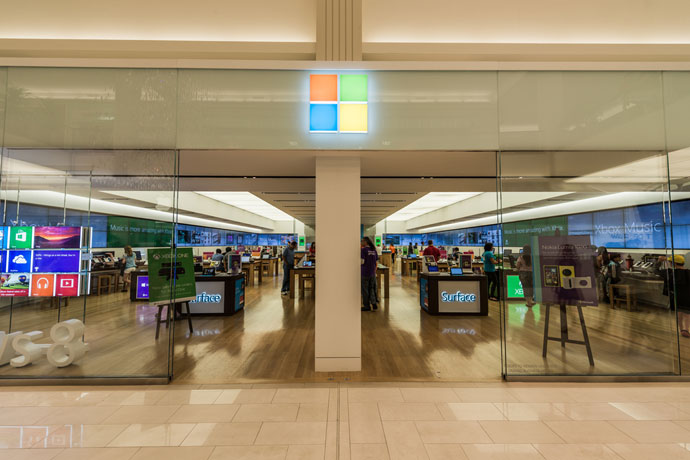
Image via IVY PHOTOS/Shutterstock
When Paul Allen and Bill Gates founded a company to program a BASIC interpreter for Micro Instrumentation and Telemetry System’s Altair 8800 microcomputer in 1975, Allen came up with the name Micro-Soft, combining the words microcomputer and software. After successfully releasing programs such as Windows, Word and DOS, the “-“ was dropped from the name in 1987 with the release of a new corporate logo.
Royal Dutch Shell plc

Image via IgorGolovniov/Shutterstock
Better known as Shell, the oil and gas company was founded in 1907 through the merger of the Royal Dutch Petroleum Company and the “Shell” Transport and Trading Company. “Shell” was actually founded in 1897 by the Samuel brothers, whose father had owned a company that actually sold seashells.
Eastman Kodak Company
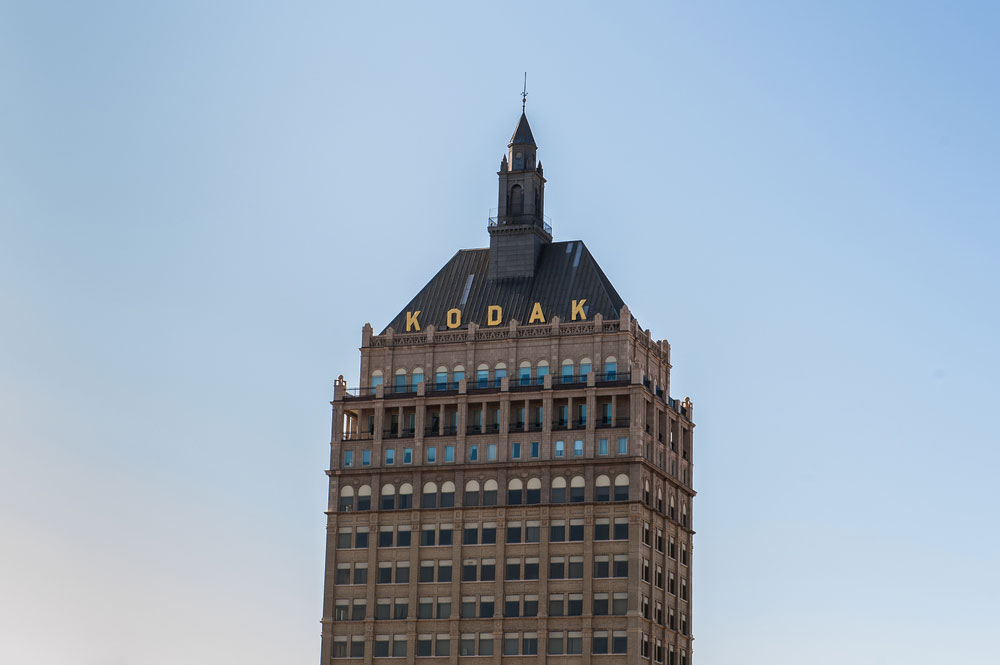
Image via Julien Hautcoeur/Shutterstock
The multinational corporation that sells photographic equipment was founded by George Eastman in 1888. Eastman was fond of the letter “K” and wanted to include it in his company’s name. After experimenting with several words starting and ending with “K,” Eastman settled on Kodak because he felt it was suited for a trademark, would not be mispronounced and didn’t resemble anything already used in the industry.
Wachovia

Image via Flickr/ gbein83
The financial services firm now owned by Wells Fargo was founded in 1879 in North Carolina. The name Wachovia was actually assigned to an area of North Carolina in 1753 by Moravian settlers. It is derived from the Latin form of the Austrian word “Wachau.” The area—which now makes up most of Forsyth County—was so named because of its similarity to the Wachau valley located on the Danube River. The Wachovia National Bank, founded in 1879, merged with the Wachovia Loan and Trust in 1911, forming the Wachovia Corporation.
Goodyear Tire & Rubber Company
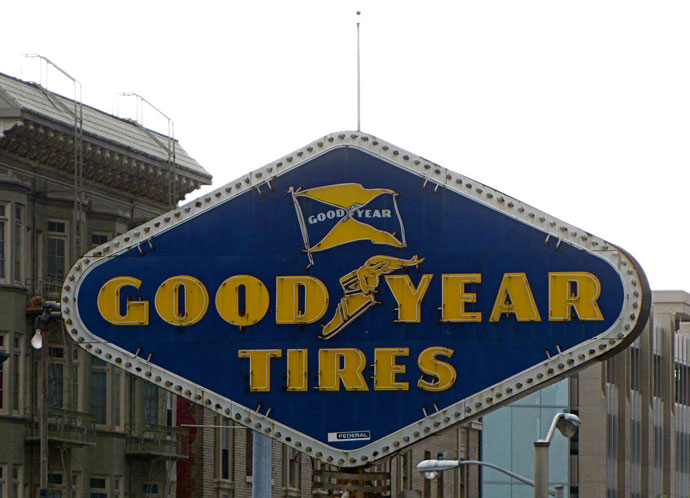
Image via Flickr/ waltarrrrr
Surprisingly, the tire company wasn’t founded by a man named Goodyear. Ohio’s Frank Seiberling started the company in 1898 and named his firm for Charles Goodyear, who invented vulcanized rubber in 1839.
eBay Inc.
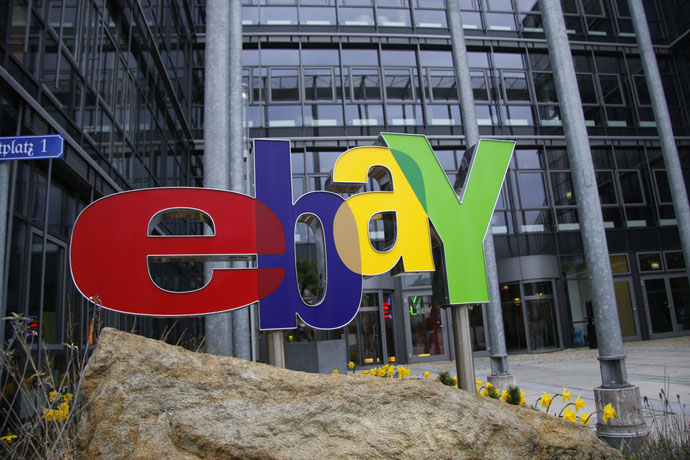
Image via 360b/Shutterstock
Computer programmer Pierre Omidyar founded AuctionWeb in 1995. The name was changed to eBay in 1997 after the Echo Bay Technology Group, after Omidyar’s consulting firm. Omidyar actually tried to register the domain name echobay.com, but it was already being used by the gold-mining company Echo Bay Mines.
Ask.com
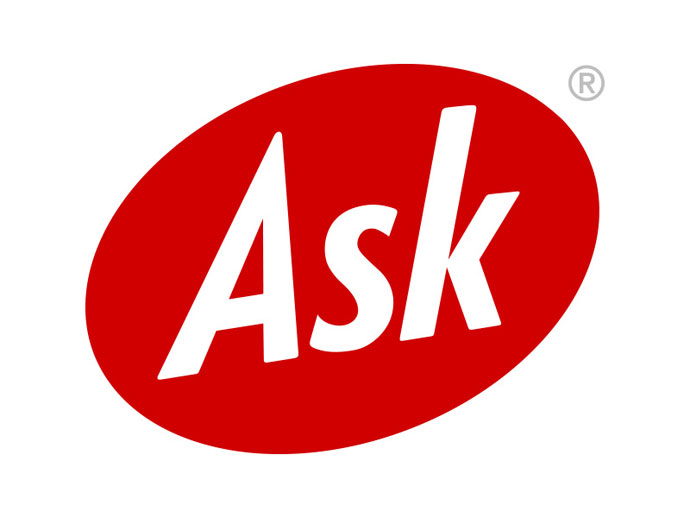
Ask.com
Ever wonder what happened to the early search engine Ask Jeeves? It’s still there, but Jeeves was dropped in 2006. Founded in 1996, Jeeves was named for the personal butler in P.G. Wodehouse works. The site was designed to allow users to get answers asked in natural language instead of keyword searching. When the search engine became Ask.com in 2006, Jeeves was said to have gone into retirement, although the UK/Ireland version of the site brought him back in 2009.
Digg

digg
The social news Web site allows people to vote Web content up or down, called “digging” and “burying.” “Diggnation” was originally considered as a name, but co-founder Kevin Rose wanted something simpler. Since dig.com was already registered to the Walt Disney Internet Group, a second “g” was added.
Skype
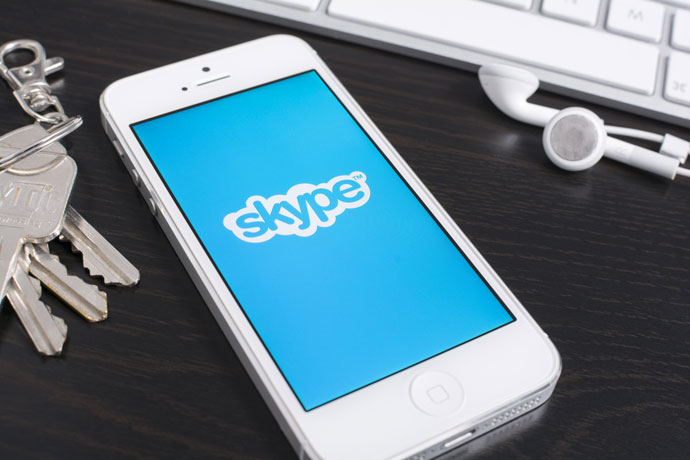
Image via Twin Design/Shutterstock
Founded in 2003, the developers of the peer-to-peer communication service considered several names for their venture. They originally conceived “Sky-Peer-to-Peer,” before simplifying it to “Skyper” and finally settling on “Skype.”
Lego

Image via Stefano Tinti/Shutterstock
The Lego Group was founded in 1932 when Danish carpenter Ole Kirk Christiansen begam making wooden toys. He named the company “Lego” after the Danish phrase “leg godt,” which means “Play well.” Although Lego also means “I put together” in Latin, the company claims the similarity is a coincidence.
Starbucks Corporation

Image via nui7711/Shutterstock
Three former University of San Francisco students opened the first Starbucks coffee shop in Seattle in 1971. They originally called the company “Pequod” after the whaling ship featured in “Moby Dick.” But when one of the partners didn’t like the name, it was changed to Starbucks after the chief-mate on the Pequod, Starbuck. Keeping with the nautical theme, the famous Starbucks logo is an image of a siren, a twin-tailed mermaid from Greek Mythology.
Amazon.com Inc.

Image via Joe Ravi/Shutterstock
The world’s largest online retailer originated as an online bookstore in 1995. Originally incorporated as Cadabra by founder Jeff Bezos in 1994, the name was changed to Amazon, after the Amazon River, the largest river in the world by volume. Bezos forsaw his online book store selling an enormous volume. He also wanted a name that began with the letter “A” so it would appear high on alphabetical lists (at the time the popular Yahoo search engine ranked sites alphabetically).
Apple
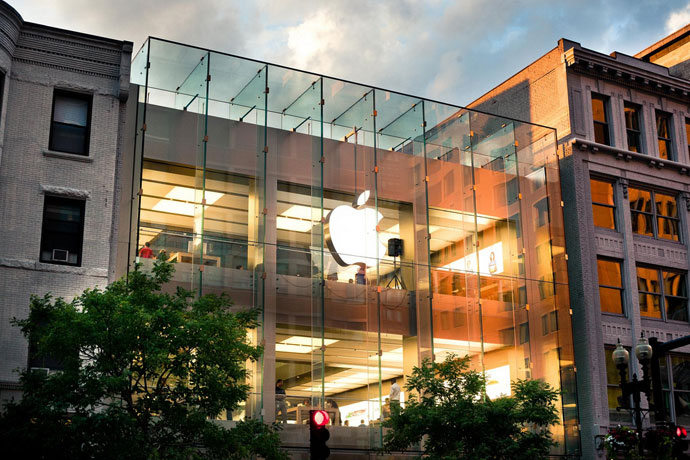
Image via Flickr/ Peter Alfred Hess
Co-founders Steve Jobs and Steve Wozniak wanted to differentiate their company from cold, unapproachable, complicated imagery created by other computer companies at the time, such as IBM, DEC and Cincom. Jobs favorite fruit happened to be the apple, and he even worked in an apple orchard for a period of time. When they couldn’t think of a proper name for their new computer company, they decided to give it one more day, and if they had no other ideas, Apple it would be. Therefore, on April 1, 1976, Apple Computer, Inc. was born.
World Wrestling Entertainment

Image via max blain/Shutterstock
Remember when the WWE was the WWF? Ever wonder why it changed at the height of its popularity? Although the WWF had been around since 1979, the World Wildlife Fund sued the WWF over the use of its initials. In early 2002, the company began a marketing campaign called “Get the F Out.”
Societe Bic

Image via Radu Razvan/Shutterstock
Better known as Bic, the company was founded in France in 1945. Known for its disposable products, including lighters, razors and ballpoint pens, was named for one of its founders, Marcel Bich. Believe it or not, the “h” was dropped from his name to avoid the common English pronunciation of his name, bitch.
Atari

Image via Stefano Tinti/Shutterstock
Founders Nolan Bushnell and Ted Dabney started their engineering firm, Syzygy Engineering, in 1972 to design arcade video games. Although it was an American company, the founders wanted a name that sounded Japanese. Before changing its name, Bushnell considered several words from the Japanese game Go. He chose Atari, a term used in the game when a stone is in danger of being taken by an opponent, much in the way “check” is used in chess. In Japanese, the word translates to “hit the target,” and is also used when a prediction comes true or if someone wins the lottery.
Yahoo! Inc.
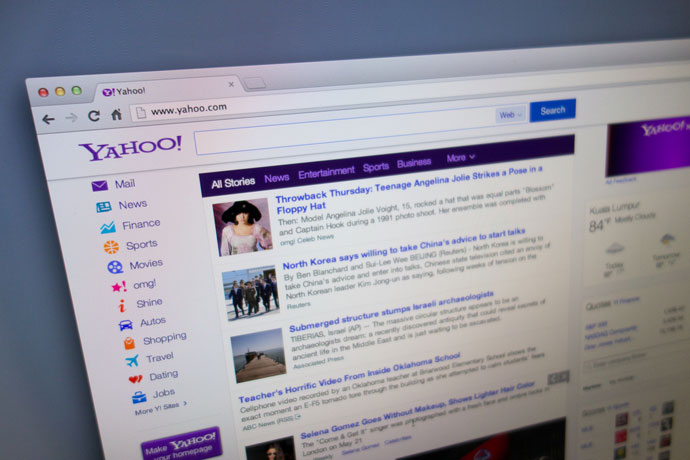
Image via AHMAD FAIZAL YAHYA/Shutterstock
Engineering graduate students Jerry Yang and David Filo created a Web site in 1994 called “Jerry’s Guide to the World Wide Web,” a directory of other Web sites organized in a hierarchy instead of a searchable index. Just two months later, however, they changed the engine’s name to Yahoo!, an acronym for “Yet Another Hierarchical Officious Oracle”—“hierarchical” for the way the Yahoo database was divided into subcategories, “oracle” meaning “source of truth and wisdom,” and “officious” for how many people used the Yahoo database while surfing the Web from work. Still, Filo and Yang later said they also chose d the name because they liked the slang definition of “yahoo”: rude, unsophisticated and uncouth, at least according to Louisiana college students in the late 80s and early 90s.









































